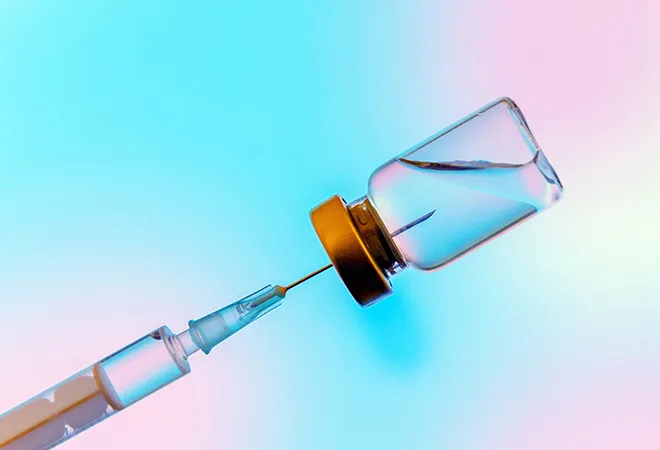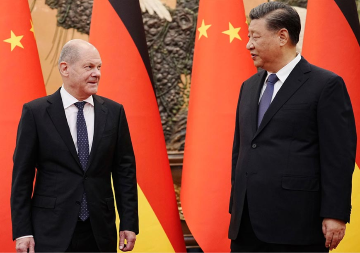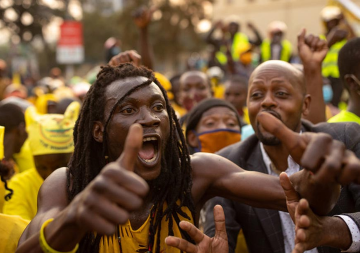
The Biden administration has agreed to support the waiver of intellectual property (IP) for COVID-19 vaccines jointly proposed by India and South Africa, under the relevant provisions of the Trade-Related Aspects of Intellectual Property Rights (TRIPS) agreement, at the World Trade Organisation (WTO). Although the support is only for the waiver of COVID-19 vaccines related IP, and not for all COVID-related technologies as proposed by India and South Africa, it is a step in the right direction. In October 2020, a similar attempt by these countries met with strong opposition from the EU and the US. The next stop now is the World Trade Organisation (WTO) where members will deliberate on the proposal. While now the EU too has expressed its support in discussing the waiver, some member states, most prominently Germany, have dug their heels in.
What calls for IP waiver?
The exclusive deals between IP-rights holders and manufacturers have failed to generate the required number of vaccines to inoculate the critical mass of the world population. Along with the scale, the speed of inoculation is equally important as the virus has shown its tendency to mutate rapidly, potentially rendering the existing vaccines useless. The exclusive deals have also led to the lopsided distribution of vaccines in favour of rich nations. This calls for freeing up IP rights that have conventionally acted as the biggest impediment in generic drug manufacturing. While the TRIPS acknowledges compulsory licensing in ‘exceptional’ circumstances, an IP waiver is a swifter remedy applicable to all patents (and other IP rights) related to a vaccine.
In ordinary times, the legal monopoly that the IP system creates is seen as an incentive that propels risk-taking and innovation. While this is the rule, the exceptions exist when the short run losses are more than the long run gains. IP waiver is one such instance. The debates may rage, as in the present times, as to which side of the balance is heavier: Incentives to chase and fight the dynamic virus or the losses in terms of human life. Indeed, the German government spokeswoman, in the context of COVID-19 vaccine IP waiver, observed that “he protection of intellectual property is a source of innovation and this has to remain so in the future”. At least in the case of most COVID-19 vaccines, the incentive argument never had the force as it was the public money that largely funded the R&D.
Others also argue that in real terms this waiver does not mean much as know-how and trade secrets will not be available to the developing countries even if IP rights are waived. The German government spokeswoman also observed the same: “The limiting factor for the production of vaccines are manufacturing capacities and high quality standards, not the patents.” As some have argued, it is also difficult to reverse engineer vaccines, to access know-how, unlike small molecule drugs.
A further impediment, as critics suggest, will be the time-consuming process of clinical trials even if developing countries overcome all hurdles related to know-how and technology.
Certainly, IP waiver is not the silver bullet but merely one step in the right direction. Arguments underscoring existing limited technology and scale, and lack of raw material, seemingly practical, fail to repose faith in the human spirit of overcoming hurdles in the face of adversity. To this end, the Economic Times editorial rightly suggests that the Government of India should cooperate with Indian biotechnologists, designers and fabricators of the vaccine equipment and boost their capability. Such help may extend to setting up and running facilities in India and assured funding from the government. If the IP hurdle is removed, it can be left to developing countries whether and how they overcome the remaining hurdles. If they fail, as ‘pragmatists’ argue, there will be no detriment to the incentive structure of the present vaccine producers. And, if they succeed, it will be nothing less than the triumph of life over death!
Aside from practicalities, that at best seem ambiguous and hence favour waiver of IP protection, some term such steps as ‘dismantling of the IP system’ and indeed ‘dismantling of the TRIPS’. A reminder that such multilateral agreements exist as exceptions and guarantees were agreed upon when they were proposed to developing countries. A human tragedy such as this pandemic with no parallels in human history is no occasion to preserve the structure when the substance is losing the promised fairness.
Emotions and irrationality: Not one and same
It may turn out to be true that the waiver is merely emotional. Such emotions are not irrational or selfish, however. Instead, the lopsided distribution of vaccines and hoarding by rich nations is selfish and irrational. While millions of vaccines sit in cold boxes in rich countries, the virus multiplies and mutates. To the contrary, emotions in these times show that the virus has not impaired our human spirit. Emotions, therefore, in these times, reflect our morality. Military shrewdness may have won battles, but the wars that shaped human existence were won on moral victory.
India: Leading from the front
‘Vasudhaiva Kutumbakam’ that translates as ‘that the whole world is one single family’ features in the ancient Indian texts and has been often quoted by the Modi government as the driving force of foreign policy. While India rightfully leads the fight at the WTO for the IP waiver proposal, it has the opportunity to lead by example by waiving IP rights on Covaxin.
The indigenous vaccine, Covaxin, which has been developed by Bharat Biotech is partially funded by the Indian government. India should now free-up IP rights on this vaccine. This will recognise India as a nation that truly believes that ‘the whole world is one single family’. In this spirit, it must go one step ahead and also share know-how and other ecosystem knowledge to facilitate local manufacturing of Covaxin. This will be one right step to acknowledge, empathise and attenuate the shared misery of humankind.
The views expressed above belong to the author(s). ORF research and analyses now available on Telegram! Click here to access our curated content — blogs, longforms and interviews.




 PREV
PREV


